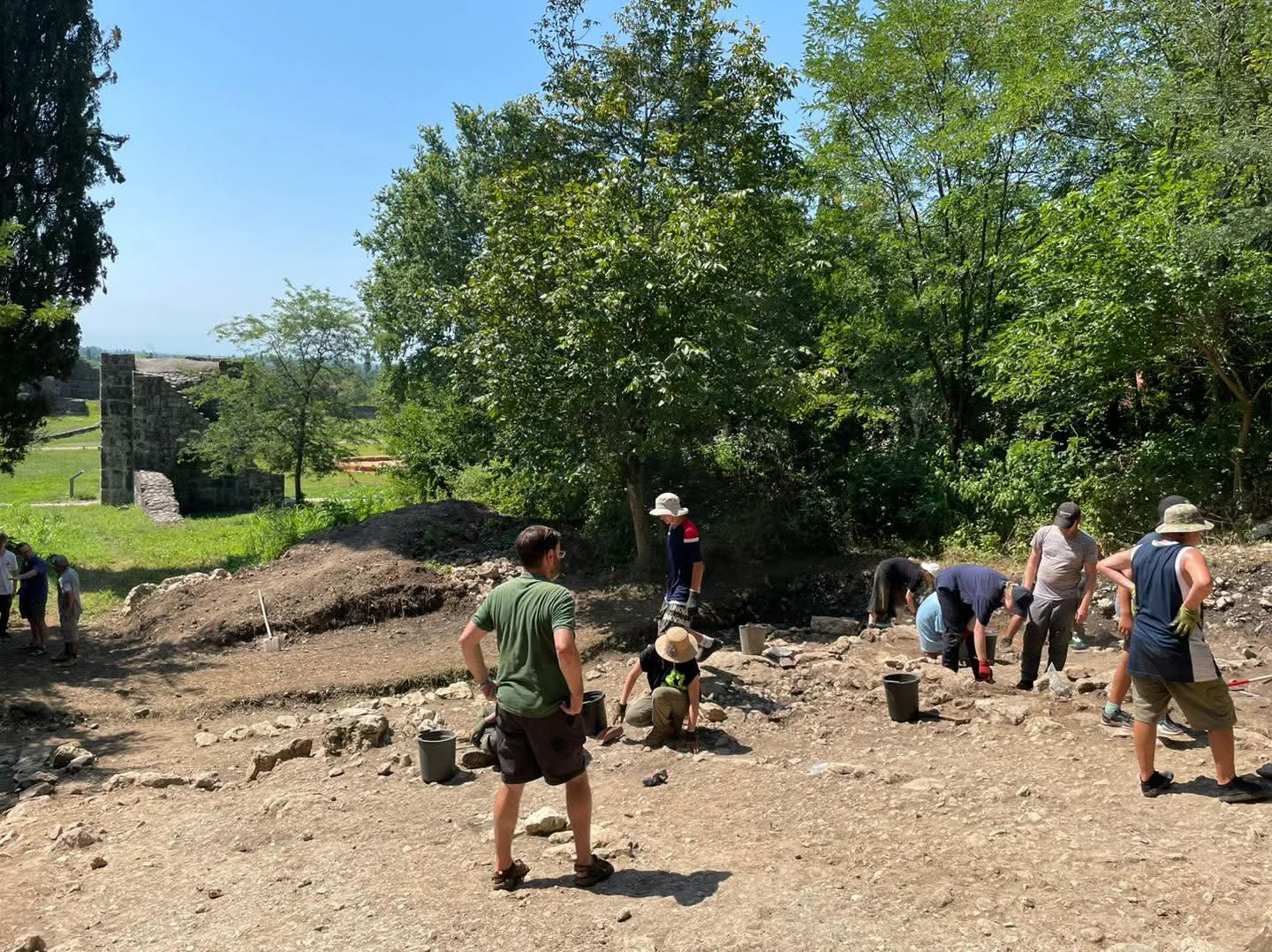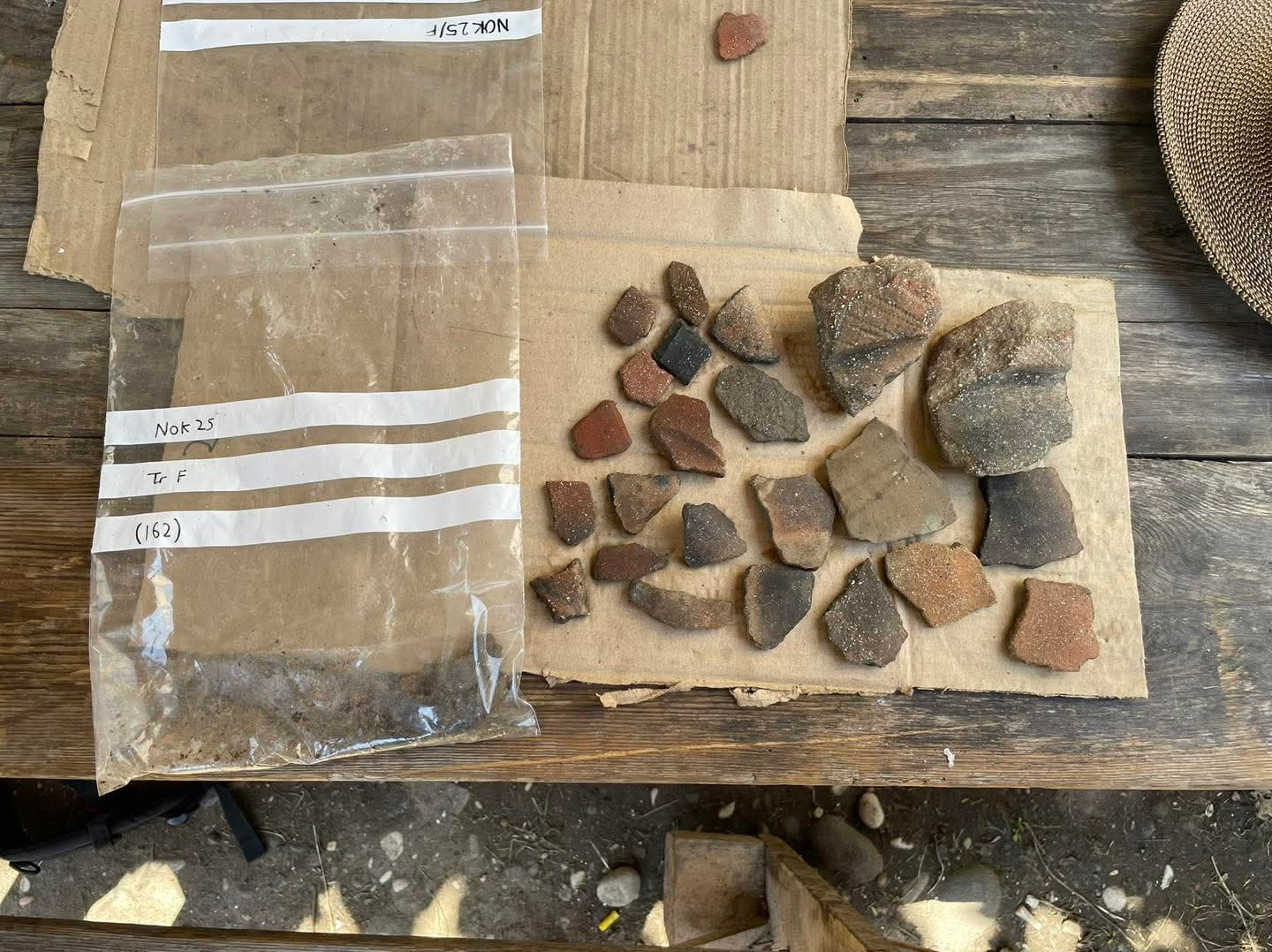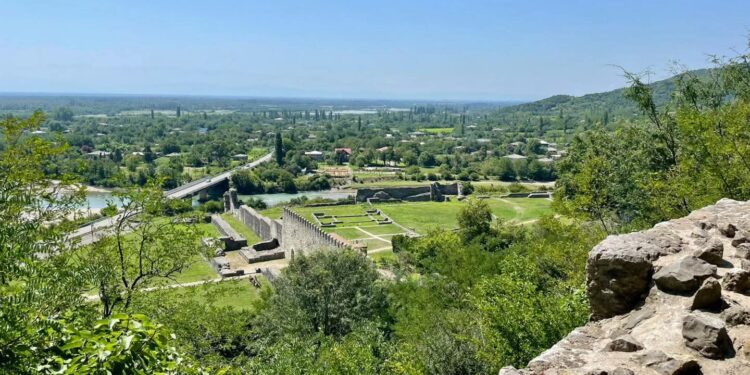The British Ambassador to Georgia, Gareth Ward, announced on his official X account that after 25 years of excavation by the Anglo-Georgian Archaeological Expedition to Nokalakevi, archaeologists unearthed fragments of a 2,500-year-old Colchis Qvevri wine jar—a pottery vessel used for traditional Georgian winemaking. His post celebrates the milestone in this long-standing archaeological collaboration and showcases traces of ancient viticulture found during the latest dig.
 The Anglo-Georgian expedition, established in 2000, has systematically explored Nokalakevi—also known historically as Archaeopolis or Tsikhegoji—a site that spans continuous occupation from the Hellenistic to Early Byzantine periods. Located in western Georgia’s Samegrelo region, Nokalakevi played a prominent defensive and administrative role in antiquity, controlling access through the Colchian plain and featuring major fortifications built to resist Byzantine and Sasanian threats.
The Anglo-Georgian expedition, established in 2000, has systematically explored Nokalakevi—also known historically as Archaeopolis or Tsikhegoji—a site that spans continuous occupation from the Hellenistic to Early Byzantine periods. Located in western Georgia’s Samegrelo region, Nokalakevi played a prominent defensive and administrative role in antiquity, controlling access through the Colchian plain and featuring major fortifications built to resist Byzantine and Sasanian threats.
This dig not only discovers artifacts but also serves as a training ground for Georgian and international archaeology students. Over two decades, the project has enrolled hundreds of participants, while contributing considerably to the archaeological record through ceramic analysis, palaeo-botanical studies, and community outreach.
 Qvevri—large earthenware amphora used for wine fermentation and aging—are central to Georgia’s identity as the world’s oldest wine-producing region. Often buried underground to regulate temperature naturally, these vessels date back at least to the 5th–6th centuries BC and are integral to Georgia’s UNESCO-registered traditional winemaking heritage.
Qvevri—large earthenware amphora used for wine fermentation and aging—are central to Georgia’s identity as the world’s oldest wine-producing region. Often buried underground to regulate temperature naturally, these vessels date back at least to the 5th–6th centuries BC and are integral to Georgia’s UNESCO-registered traditional winemaking heritage.
Finding a 2,500-year-old Qvevri fragment in Nokalakevi is significant on multiple levels. It confirms that winemaking was practiced at this fortress site during the early periods of Colchian civilization. It reflects deeply-rooted brewing traditions and adds dimension to archaeological understanding of daily life, economy, and cross-cultural links in the Black Sea region.
Ambassador Ward’s message underscores not only the historical importance of the discovery but also the enduring partnership between the UK and Georgia in heritage preservation. Since presenting his credentials in August 2024 and formally beginning his tenure, Ward has emphasized cultural cooperation alongside political and economic ties between the two nations.
Nokalakevi’s layered history, with remains spanning from the Colchian Kingdom, Byzantine epochs, and medieval Georgian polities, continues to offer fresh archaeological revelations. Specialists leading the expedition include Georgian experts such as Professor David Lomitashvili and Dr Nikoloz Murgulia, who have guided AGEN since its re-launch in 2001.
The recently unearthed Qvevri fragments testify to the rich viticultural legacy of ancient Colchis and contribute to the narrative of Georgian national heritage.
Photos: British Embassy Tbilisi














